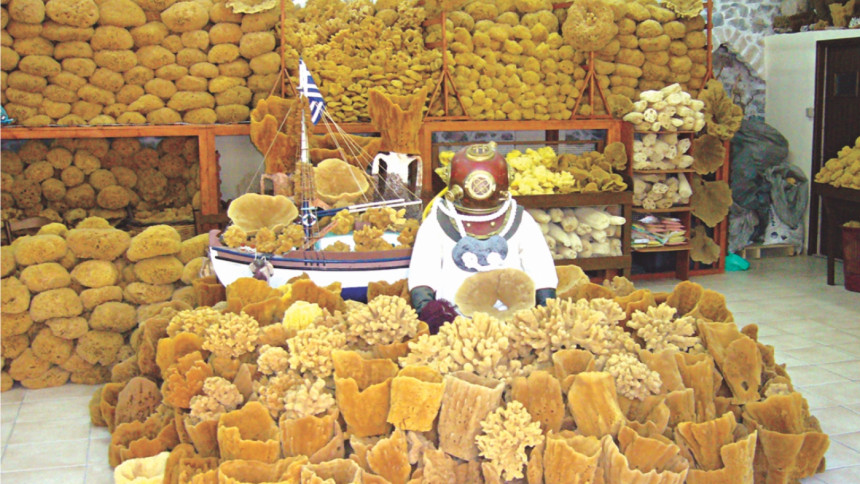The Sponge Divers

There is an ancient Greek myth that says humans learnt to dive under water to collect sponge. In fact, sponge diving is the oldest form of the original art of underwater diving which was practiced by many ancient civilisations such as Greeks, Egyptians and Indians. And, this strange profession of exploring seabed for sponge still exists in this twenty first century. Marine sponges are one of the oldest forms of life on earth. The porous bodies of these multi-cellular organisms made of silica and calcium carbonate are highly prized by humans from ancient times. Pure calcium carbonate skeleton of sea sponges are used as cleaning tools, paint applicator and to produce different kinds of valuable medicines and antibiotics. For such usefulness, divers scan the seabed for these precious stationary marine creatures ignoring fatal threats from sharks, sea serpents and octopuses. Despite the invention of artificial sponges and aquaculture of sea sponges, naturally born sea sponges are still of great demand. And, divers all over the world do not hesitate to dive into the seabed in search of them even without any safety equipment. In Indonesia, divers can explore the sea bed for as long as 5 minutes without any breathing device. Even in Bangladesh's coastal islands, fishermen dive into the sea to collect sea sponges without any diving gear. However, such extraction of sea sponges at this industrial scale has various adverse effects on the already endangered marine ecology.


 For all latest news, follow The Daily Star's Google News channel.
For all latest news, follow The Daily Star's Google News channel. 



Comments